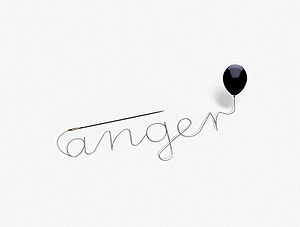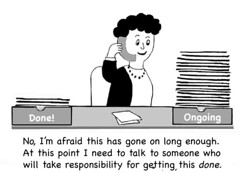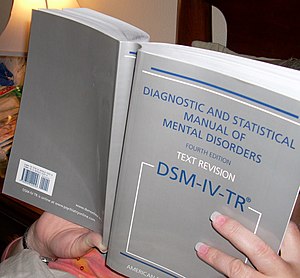
When peace, like a river, attendeth my way,
When sorrows like sea billows roll;
Whatever my lot, Thou has taught me to say,
It is well, it is well, with my soul.
When sorrows like sea billows roll;
Whatever my lot, Thou has taught me to say,
It is well, it is well, with my soul.
Today, as I sang this song in church, I thought about the story behind the words I was singing. Starting out life in the Baptist church, I remember singing this song many times over the course of my life and it has become one of my favorites. However, as a child, it was hard to understand the implications of what Mr. Spafford was trying to convey as he created this wonderful hymn.
This beautiful hymn was penned by an attorney who lived in the mid 1800s, whose name was Horatio Spafford. Mr. Spafford was a friend of D.L. Moody and lived in the upper Midwest. Although you would think of an attorney as being quite successful, his story is one of great tragedy and loss. (If you would like to read his story, please click here.) Even so, amidst the losses that he experienced, he was able to write words such as these....it is well, it is well, with my soul.
For much of the church service I was deep in thought, the Pastor's words floating in and out of the thoughts that were inundating my mind. Over this last year, it seems as though there have been a lot of losses in my own life....difficult losses that have pierced my heart so deeply that I have begun to wonder just how long these feelings were going to persist; if I could handle any more saddness. In the midst of these losses, I found myself becoming impatient with my life's circumstances, wanting desperately to change them. My heart has longed for a life with less responsibility, less stress and more joy. I have wanted to just go play, have lunch with my friends and do what "I" want to do without having to make sure certain conditions are in place that would allow me to spend a few hours here and there. Unfortunately, these things have seemed very unattainable.
As the service progressed, the Pastor began to speak about a new born child who had been born to a young couple in our congregation. Due to complications, she had a difficult birth, wasn't breathing and had to be rushed to the hospital in a town close by for special medical attention. It is possible that she might have brain damage due to the lack of oxygen. As we prayed for this child, I couldn't help but think about how tragic it would be for a child to be brought into this world and from the start not be healthy. I felt such sadness for this family.
The more I thought about this, my thoughts turned to my husband of 35 years, whose history I know all too well. It seemed as though, like this little baby, he had a hard time from the beginning of his life too. Although he was a healthy, normal baby, he was born to parents who were quite dysfunctional. His mother and father divorced shortly after he was born. At around a year of age, she voluntarily gave custody to his dad who was an alcoholic. There was terrible and tragic abuse that happened until he was placed in a children's home when he was 9, due to the death of his grandmother. Unfortunately the abuse just took a different form and by the time he was 17, he was given the choice of going to jail for committing a crime or joining the Navy. His Navy record was less than sterling and after he got out, he spent some time in jail and most of the rest of his life in a bottle. In 2001, he suffered a massive stroke and lost the use of half his body as well as his speech.
That was 11 years ago. After my father passed away this year, I really lost all motivation to continue as a care giver on any level. It has been a struggle to keep my head in the game and I have been trying to find ways to shed the responsibility, yet in my heart knowing that just because I am having a hard time, that alone is no reason for my husband to have to pay for that. My family, his family and many friends would support me if I chose to place him in a care facility....yet I don't find comfort in that solution either. It isn't the right thing to do. These thoughts, although not central to what was going on in my mind, were having a significant impact on what I had carried with me to church this morning.
The things that I was hearing as I sat in the pew this morning began to form around a different context. I took a look at my husband through the lens of a counselor, rather than the lens of a wife. Again, as it has in the past, compassion began to soften the resentment that had built up and I saw that precious, scared, abused little boy who grew up into a scared, young sailor performing body bag detail aboard ship off the coast of Viet Nam. He was never diagnosed with PTSD but he surely has struggled with it most of his life; trying very hard to cope with the demons in his mind that have caused him so much pain for so many years. My heart broke for him, again, and I understood, again, that it is my privilege to be able to take care of him. It is something that came as part of the package when I prayed that the Lord would spare his life the day the stroke came. Although I did not fully understand what I was asking for at the time, over the years it has become clear and it is my life now. It is also his life, which is a very precious commodity...something to be respected and cared for.
Today the Pastor began to talk about things that made sense to me...things that I have even told myself....and then there was that hymn. As much as I have experienced loss this year, I began to think about how many things I have to be thankful for. Those things are real too. Thinking about all that the Lord has done for me and my family in the middle of such great loss, a feeling of gratefulness started to infiltrate my heart and mind; making me realize how much this life is a matter of perspective. It seems as though sometimes reality is made up of what we are focusing on and if our focus is the negative, then life is going to look pretty bad. On the other hand, if we are intent on seeing a more positive perspective, reality tends to take on a better outlook.
How could Mr. Spafford say it is well with my soul? Perhaps it is because he was looking at life through the lens of blessing rather than through the lens of loss and bitterness. The story of his life doesn't talk about what those blessings might be, but there must have been something that was bringing him comfort in the midst of his tragedy. Looking back, much of the distress that I experienced over the last 18 months came from fearing things that could have happened but didn't happen, threats that seemed so real but never materialized. Some of the things I was distressed about did happen, but they have since proven to be less of an impact than I thought they were going to be. So much stress, so much wasted energy. Hindsight is 20/20 they say.......I concur.
A year ago today, I was standing beside my father's bedside in the Emergency Room at KMC waiting for the doctor to confirm he had a broken hip. That event began a 2.5 month ordeal that ended in his death. It was not the result that I had ever imagined and I often have vehemently referred to it as a "damned tragedy". I miss him and life will always be different without him here. However I don't think that he would have wanted me to live my life focusing on his loss rather than the blessing that he brought into my life.
 |
| Image by Lorenzoclick via Flickr |
When peace, like a river, attendeth my way,
When sorrows like sea billows roll;
Whatever my lot, Thou has taught me to say,
It is well, it is well, with my soul.
When sorrows like sea billows roll;
Whatever my lot, Thou has taught me to say,
It is well, it is well, with my soul.















































